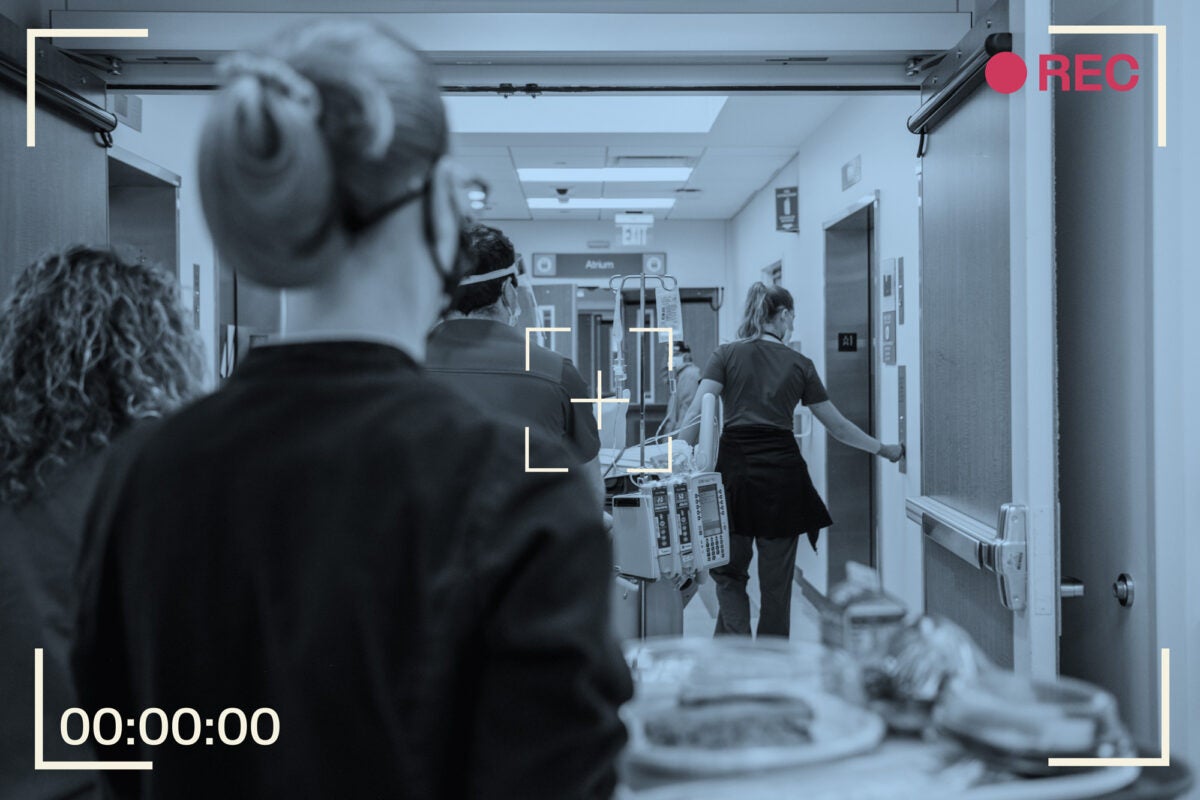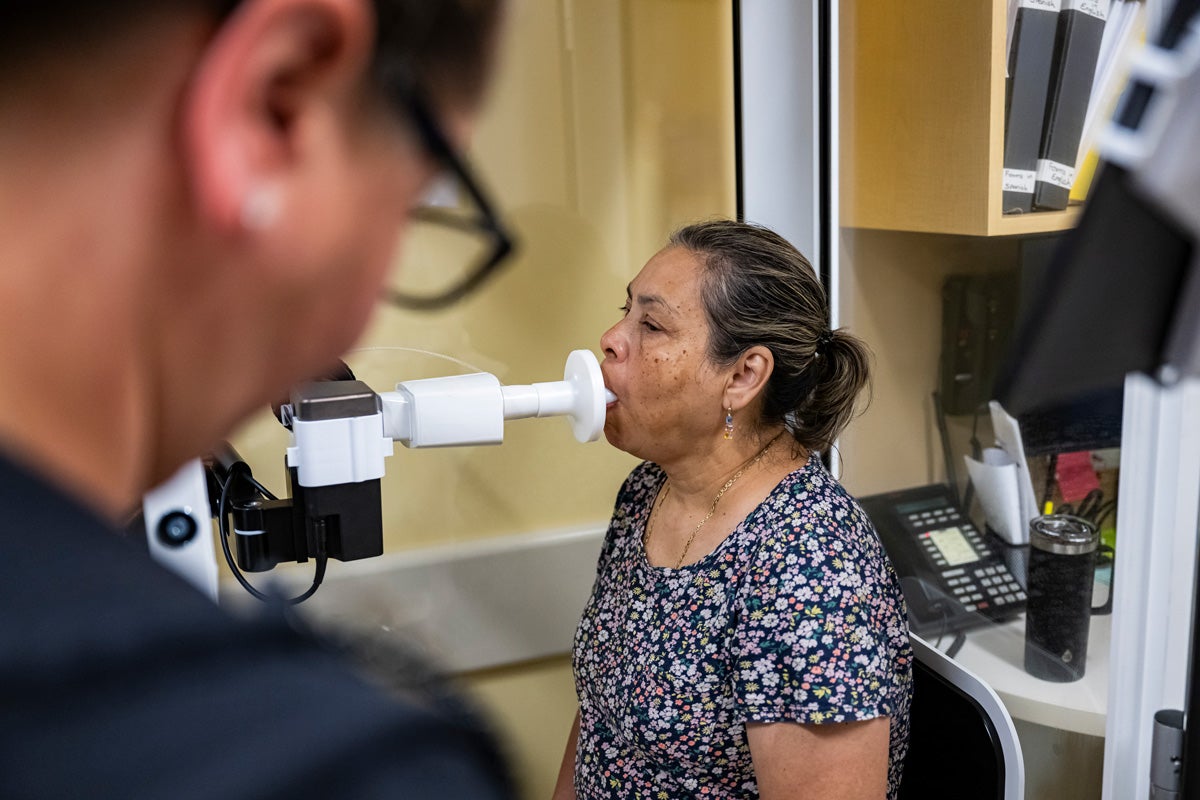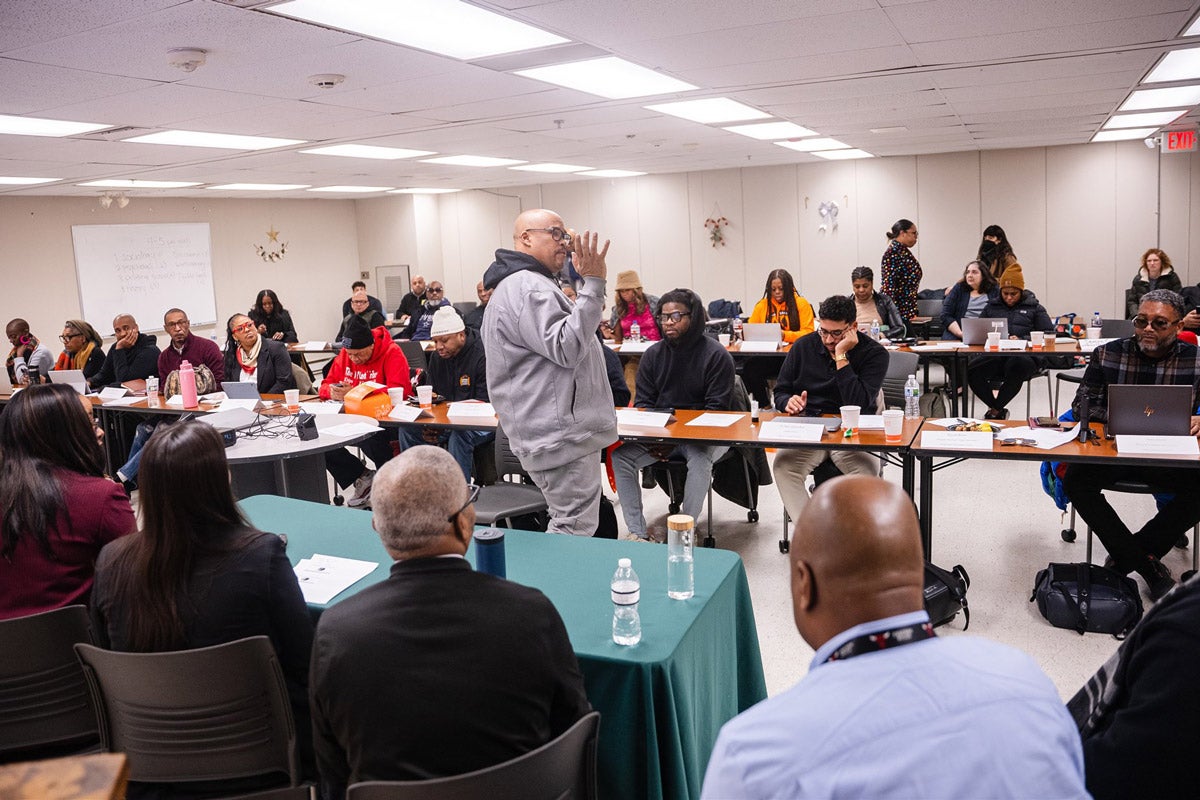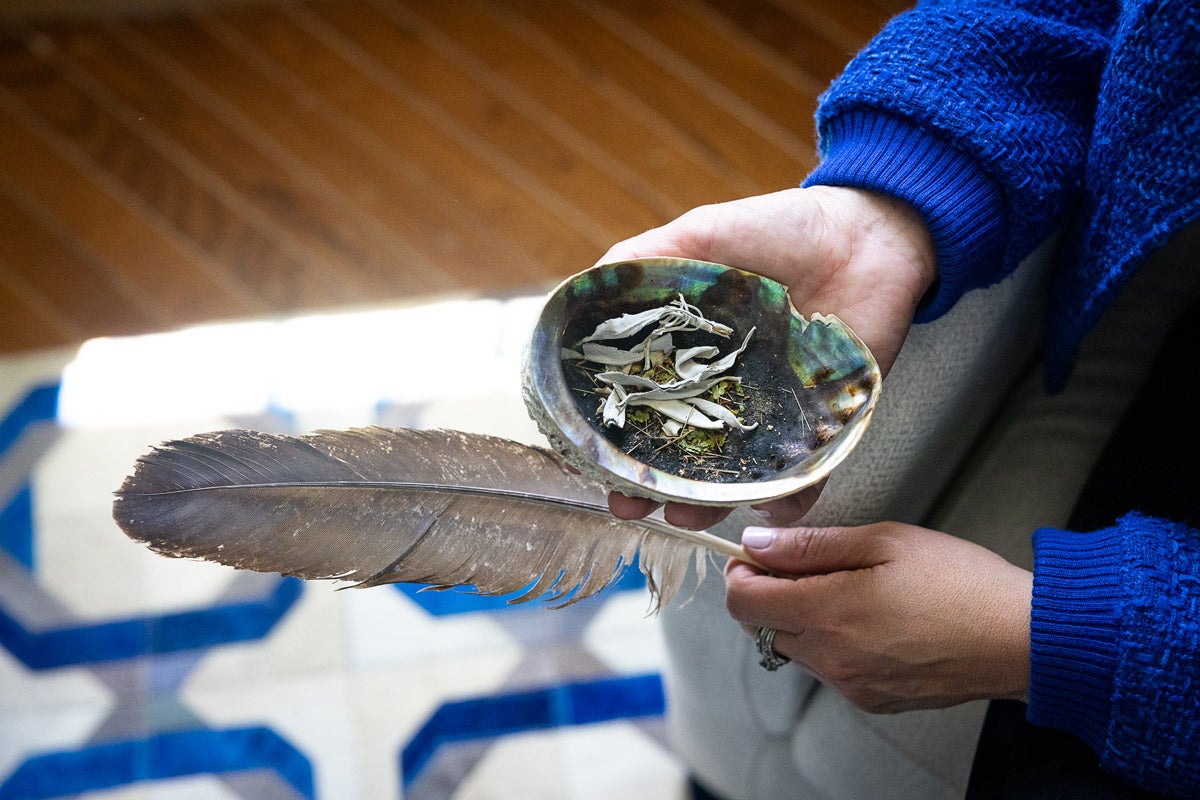
Essay
Can body cameras reduce discrimination in hospitals?
This piece was first published in The Emancipator.
Like police officers, doctors and nurses make life-and-death decisions. Yet the disproportionately poor and racist care that leads to the harm and death of Black patients largely goes unchecked. If more police are wearing body cameras, doctors and nurses should, too. After all, if health care professionals aren’t engaging in racist behavior, there should be no problem.
As a physician, I have witnessed countless racist behaviors toward Black patients, often coupled with conscious and cruel statements. I have heard White nurses joke that young Black children will probably join gangs and doctors describe the natural hair of Black people as “wild” and “unkempt.” I have seen Black patients unnecessarily physically restrained. I have stood in the emergency department as a Black teenager died from a gunshot wound while White staff chuckled, saying he was “just another criminal.”
Sign up for Harvard Public Health
Delivered to your inbox weekly.
Three years have passed since George Floyd was murdered by police, prompting the release of antiracism pledges across a myriad of national medical organizations. Yet Black Americans still are suffering from medical violence, which kills through delays in medical care, pain undertreatment and misdiagnoses.
Black women are more likely to die in childbirth than White women, regardless of socioeconomic status. Black children are more likely to be physically restrained than White children, with those aged 5 to 12 twice as likely to commit suicide than their White peers. In contrast, Black infants are more likely to survive when cared for by Black physicians, and Black patients live longer when they have access to Black primary doctors, though that option isn’t always available, particularly in emergencies.
Many times, I wished the anti-Black responses I experienced in hospital settings were recorded.
Body cameras record the actions and behaviors of police in real time, which can be accessed during police violence investigations. Body camera footage is linked to reduced police brutality, and cameras in schools are effective against bullying. Monitoring the actions of individuals can result in self-checking behavior. If we want to see a reduction in poor health outcomes for Black patients, we must hold health care professionals accountable in real time.
My sister could have died from delays in care.
My mother, a pharmacist, noticed she was having trouble breathing after eating a Brazil nut. She recognized the signs of anaphylaxis and took her to the emergency department. Despite my mom’s insistence that my 9-year-old sister could be suffering from a deadly allergic reaction and seemed to be wheezing, White nurses refused to treat her with urgency, leaving them sitting in the waiting room. Without even properly examining my sister, the nurses informed my mother she would have detected a nut allergy earlier in my sister’s life if it was serious.
When they finally did listen to my sister’s heart, they heard the wheezing for themselves and took my sister to an emergency room bed. The doctor took one look at her and excused herself. My parents heard her yelling in the hall that my sister was in anaphylaxis and needed urgent assistance.
What if the health care professionals entrusted with the care of Kira Johnson had body cameras on? Would her life have been saved?
What if those nurses were wearing body cameras to document their frank dismissal of my mother’s concerns? What if the health care professionals entrusted with the care of Kira Johnson had body cameras on? Would they have still performed her C-section in 17 minutes and delayed running further testing, despite her husband’s concerns that she had blood in her catheter? Would her life have been saved?
In December 2020, Dr. Susan Moore posted a video of herself on Facebook while hospitalized with COVID-19. She called out the racism she experienced, including undertreatment of her pain and doctors pushing her to leave the hospital, denying she was experiencing shortness of breath. Less than 12 hours after being discharged, she was admitted to the hospital again.
She ultimately died from complications of COVID-19. What if her clinical team had been wearing body cameras? The general public could have witnessed the behavior of her doctors and nurses with their own eyes.
It is well known that more police are mandated to wear body cameras due to the disproportionate racist violence that Black Americans endure. Some argue body cameras have not saved Black lives, like Tyre Nichols. But even if body cameras do not deter those wearing them from engaging in racist behaviors, the footage can stand as important evidence.
Patient discrimination can lead to doctors losing their medical license, but proving someone engaged in racist behavior after the fact is challenging, especially when it isn’t recorded.
Doctors can be sued for medical negligence, but medical malpractice claims require time, money and substantial evidence. Even with strong evidence, a study found doctors still win 50% of the time. Further, even if medical negligence is proven in courts, it does not automatically mean the doctor responsible will lose their medical license. A doctor who engaged in racist care resulting in the death of a Black patient might still carry on treating Black patients.
Patient privacy is protected by HIPAA, but patients or their families could consent to the release of body camera footage if they want to bring forward complaints of racism. Since most health care professionals claim their intentions are honorable, the body camera footage would only theoretically reinforce that truth. There would be no statements criminalizing Black patients or laughing about their pain.
Racism in hospitals is underreported, in part because the burden of proof often falls on the patient or witness reporting it, and risks of retaliation can be high. While racism reporting systems exist in some hospitals, the ability to hold health care professionals accountable for that treatment, in particular, is questionable and inconsistently enforced.
If hospitals and medical institutions want to make good on those anti-racism statements made in 2020, prove it: Have health care professionals wear body cameras. As a patient, I would feel far more comfortable if they did. And as a doctor, I will volunteer to wear one first.
Photo illustration: Alex LaSalvia/The Emancipator. Source image: Brandon Bell/Getty Images


